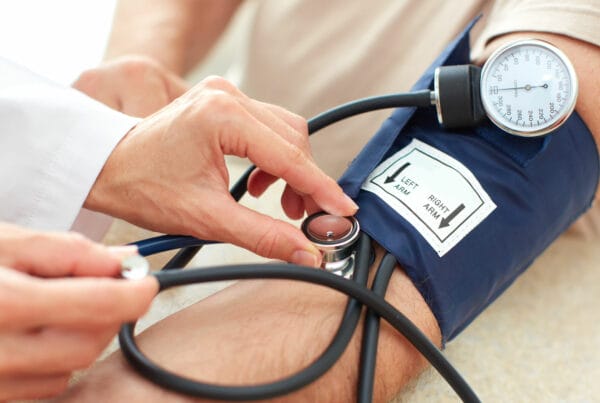
Alzheimer’s disease and dementia affect millions of Americans and their families. At Active Home Health, Hospice & Personal Care, we often care for Utah seniors who are living with these conditions. After years of experience supporting both Alzheimer’s and dementia patients and their families, we developed Active’s Purple Tuesday program — an awareness campaign that shines a light on these common yet misunderstood conditions.
Below, we put together a quick overview of some Alzheimer’s disease statistics and dementia facts. If you are facing a new diagnosis, this can help you and your family understand the scope of these conditions. If you are a caretaker for a senior you believe may be developing cognitive and memory issues, we also outline some common symptoms and early indicators of dementia to watch for in your loved one.
 What is Alzheimer’s disease?
What is Alzheimer’s disease?
Alzheimer’s is a disorder of the brain. It is the most common type of dementia and tends to set in as a person ages, typically after age 65. However, a small number of people develop early-onset Alzheimer’s which can begin developing as early as ages 30 to 40.
Alzheimer’s affects the areas in the brain that handle language, memory, and cognition. The initial effects of Alzheimer’s tend to be minor losses of memory or confusion; a person may struggle to recall a name or become disorganized. However, the disease will progress, and the effects tend to become more severe over time. In the late stages of the disease, Alzheimer’s can lead to a person losing their ability to hold a conversation, maintain bladder control, and drink or eat on their own.
Along with the mental decline people with Alzheimer’s suffer, they and their families also often face a heavy emotional burden. It’s incredibly difficult for family members to watch as close loved ones slowly lose their mental abilities or face new personality changes.
Alzheimer’s Disease Statistics
- Over 6 million Americans live with Alzheimer’s.
- By 2060, up to 14 million Americans could have Alzheimer’s.
- Alzheimer’s disease develops in someone every 65 seconds.
- Alzheimer’s is the seventh leading cause of death among adults in the United States.
- For adults 65 or older, Alzheimer’s is the fifth leading cause of death.
What is the difference between dementia and Alzheimer’s?
The term dementia does not refer to one singular disease. Instead, it is used to describe a wide range of diseases, like Alzheimer’s disease, that share similar symptoms. These symptoms include disruptions in memory, reasoning, decision-making, language skills, and controlling emotions.
Alzheimer’s is the most common type of dementia. Sometimes people will incorrectly use the terms Alzheimer’s and dementia interchangeably. However, head injuries, stroke, or other medical conditions can cause different types of dementia that are not categorized as Alzheimer’s.
Dementia Facts
- Over 55 million cases of dementia affect people worldwide.
- Every year, 10 million people develop dementia.
- Worldwide, dementia is the seventh leading cause of death.
- Alzheimer’s disease contributes to up to 70 percent of dementia cases.
- One-third of seniors have Alzheimer’s or another dementia when they die.
- Alzheimer’s and dementia deaths rose by 17 percent during the 2020 COVID-19 pandemic.
- Americans spend $321 billion on dementia care.
 What causes Alzheimer’s?
What causes Alzheimer’s?
The research to pin down the root of Alzheimer’s continues. So far, no single cause has been identified. However, researchers have identified a series of factors that can contribute to the development of Alzheimer’s. The Mayo Clinic reports that, at a basic level, Alzheimer’s develops when brain proteins fail to function normally. This loss of neuron function disrupts the work of brain cells and triggers a series of toxic events. As neurons are damaged, their connections weaken, and they eventually die.
Some risk factors you can control. Others, you can’t. Risk factors include your age, family history, genetics, heart health, and lifestyle. Head injuries can also contribute to Alzheimer’s and dementia.
Is Alzheimer’s genetic?
Family members often ask, “Is Alzheimer’s hereditary?” The answer isn’t a clear yes or no. Evidence does indicate that genetic and hereditary factors contribute to the risk of Alzheimer’s disease. However, this doesn’t mean that if someone in your family has Alzheimer’s, you will develop it; it only means that your chances will be higher.
Maintaining a healthy lifestyle that promotes a healthy heart and mind may help reduce your risk. However, so far, there is no proven lifestyle to prevent Alzheimer’s.
Researchers continue to study the effects of Alzheimer’s to develop ways to treat, cure, or prevent Alzheimer’s and dementia. Continued funding for that research is vital. That’s why Active Home Health, Hospice & Personal Care promotes awareness of Alzheimer’s prevalence and impact through our Purple Tuesday program in homes and nursing facilities around Northern Utah. More awareness leads to more funding and more answers.
How Alzheimer’s Affects the Brain
Alzheimer’s disease develops over time and worsens with age. It slowly affects the brain cells until they stop functioning correctly. The disrupted brain function leads to memory loss, cognitive impairment, and eventually dementia. Let’s take a closer look at what happens in the brain as Alzheimer’s develops.
Everything we as humans experience in life depends on our brains functioning properly. Our thoughts, emotions, words, and memories all rely on the cells in our brains, called neurons, to communicate. The neurons communicate with each other through electrical impulses and relaying chemicals from one to another. Other brain cells aid communication by keeping the neural pathway clever of debris and the neurons healthy.
As people develop Alzheimer’s, the neural communication in the brain gets disrupted by two proteins, beta-amyloid and tau. Beta-amyloid builds up like plaque between neurons and disrupts the flow of information from one cell to the next. At the same time, tau collects inside the cells, prohibiting its normal function. As these two proteins accumulate and build up within the brain, they interfere with communication between neurons, eventually leading to the symptoms that we all associate with Alzheimer’s disease.
The brains of some Alzheimer’s patients also show signs that they were not receiving the proper amount of blood flow from the cardiovascular system. They also may lack the energy needed to perform accurately. As the support cells that keep the neural pathways clear begin to fail, debris accumulates, causing disruptions and inflammation.
As the neurons lose the ability to communicate with each other, they die, and the brain shrinks. Neuron death usually begins in the portion of the brain that controls learning and memory known as the hippocampus. That’s why the first symptom people with Alzheimer’s often report is memory difficulties. Eventually, as neuronal death spreads to other areas of the brain, the person suffering from Alzheimer’s loses the ability to communicate and take care of themselves. People with end-stage Alzheimer’s disease often require around-the-clock care.
While there are medications to temporarily help manage some of the symptoms associated with Alzheimer’s disease, there is currently no cure available. A diagnosis of Alzheimer’s disease is fatal.
Symptoms of Alzheimer’s and Early Warning Signs of Dementia
The early warning signs of Alzheimer’s disease first manifest in the form of Mild Cognitive Impairment (MCI). The symptoms of MCI are noticeable to a person’s friends or family but don’t interfere with the functioning of their daily lives. MCI can include forgetting important information that is usually easily recalled or declining decision-making or planning skills. About 10 to 15 percent of people experiencing MCI will develop dementia.
If you notice these symptoms in yourself or a loved one, seek help from a medical professional. They can order a positron emission tomography (PET) scan or other tests to check for amyloid plaque or other early signs of Alzheimer’s disease.
 Find support for Alzheimer’s or dementia care
Find support for Alzheimer’s or dementia care
If you believe a loved one is experiencing MCI or other cognitive impairments — or your loved one living with Alzheimer’s or dementia has progressed in their symptoms — we encourage you to find help through our team at Active Home Health, Hospice & Personal Care.
Our care team has the knowledge and experience to care for dementia and Alzheimer’s patients with patience and compassion. We offer at-home personal care for Alzheimer’s disease, a service that can significantly impact the quality of life for overwhelmed caregivers. Additionally, our nurses and physical therapists can provide supportive treatments and skilled care to help treat the physical effects of these diseases. If the disease has progressed to the point of interfering with your loved one’s ability to care for themselves, our hospice team can also step in to provide a higher level of comfort and care your loved one with Alzheimer’s might need.
If your loved one has Alzheimer’s or dementia, know that you aren’t alone. Contact Active Home Health, Hospice & Personal Care for at-home support for your loved one from Utah’s most trusted home health care team.
 What is Alzheimer’s disease?
What is Alzheimer’s disease? What causes Alzheimer’s?
What causes Alzheimer’s? Find support for Alzheimer’s or dementia care
Find support for Alzheimer’s or dementia care

